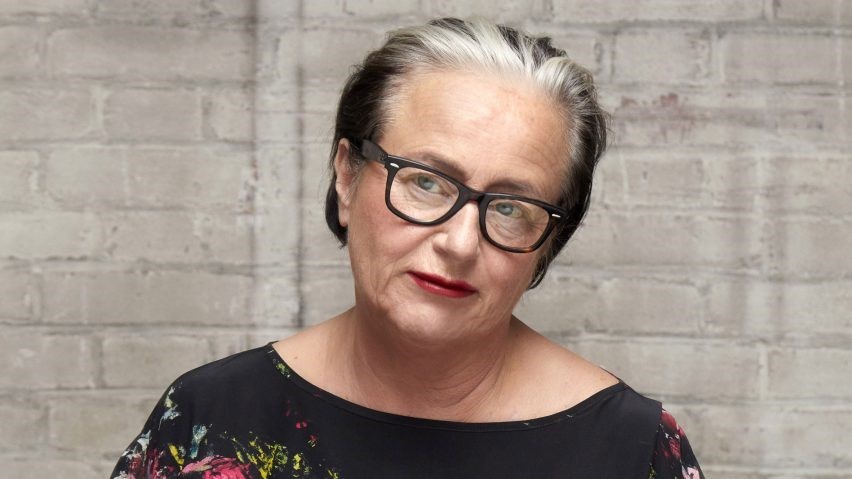Coronavírus é oportunidade de “resetar” estilo de vida

Publicado originalmente no Linkedin, em 16 de março de 2020.

A leitura da entrevista da holandesa Li Edelkoort para Dezeen publicada dia 9 traz novas perspectivas que esta pandemia pode gerar. Nada de alarmismo ou de (ainda mais) trágico, mas talvez uma parada obrigatória no mundo, para repensar quantidade de consumo, intensidade com que as pessoas vivem (especialmente em metrópoles) e hábitos do cotidiano.
Entre os conceitos que ela traz está o de “quarenta de consumo”, que nada mais é do que as pessoas descobrirem, em suas casas, o valor de pequenos prazeres como cozinhar algo para a família com mais carinho, rever o armário de roupas com o que já se tem ou algo que eu mesma acrescentaria, como finalmente montar aquele quebra-cabeças que estava tomando pó no armário. Isto porque passeios ao ar livre, por algum tempo, estarão mais limitados. Isto tudo levará a um consumo reduzido e mais ponderado.
Entre outras coisas, o resultado será uma considerável redução na emissão de carbono por alguns meses. As pessoas vão conseguir respirar melhor e mais uma alavanca para que repensemos hábitos de consumo.
Eventos enormes como Mobile World Congress, em Barcelona, ou os Salões do Automóvel de Genebra e São Paulo foram cancelados. Está aí uma forma compulsória de medir a efetividade destes megaeventos na atualidade. E também de testar novas formas de trabalho virtual, mais efetivas e menos prejudiciais ao meio ambiente. Nesta mesma linha, nossa capacidade de trabalhar remotamente, como nova cultura imposta, será testada.
Leia, na íntegra, a entrevista feita por Marcus Fairs com Li Edelkoort por email, uma vez que ela está trabalhando em isolamento, remotamente, da África do Sul, por decisão própria.
Em tempo: Li Edelkoot é um gênio. É uma designer holandesa que acabou se tornando um trend setter. A mais famosa das trend setters no mundo. Não, ela não é uma “cool hunter” que fez cursos de como identificar tendências. Ela tem este dom, sempre teve, de “sacar” o que vai acontecer no mundo. Tem as antenas da intuição ligadas e desenvolvidas, aliadas a uma educação primorosa, muita base de conhecimento.
Marcus Fairs: What do you think the impact of coronavirus will be?
Li Edelkoort: The impact of the coronavirus will be layered and complex, going from disbelief and social reassurance to the progressive perception of the impact on our lives to an eerie apprehension of what the scenarios might be, to the realisation of eventual solutions by self-separation in society and self-contained offices, ateliers and retreats.
It is hard to understand the math with the numbers jumping so quickly in short periods of time, hence the continuous disbelief. For now only China, Korea and Italy have introduced the measures other countries will have to follow.
Anyone still planning public events in the coming months might as well stop organising today and find innovative ways to communicate and relay the information differently. This may be very sad news for all the graduates-to-be who might have to throw their caps into the air towards their own ceilings.
Marcus Fairs: You told Quartz magazine: “I think we should be very grateful for the virus because it might be the reason we survive as a species.” Do you stand by that and what do you mean?
Li Edelkoort: The Quartz article was taken from a short interview between breaks at the Design Indaba conference and the virus wasn’t the main subject matter, but I do stand by what I said.
As a prime target for this virus, because of my old age and history of respiratory illnesses, I am aware of the immediate dangers and threats this represents for people all over the world. And I am very sad for the families of the people that already gave their lives to this new illness. Hopefully, they did not die in vain as the world will strive to resurrect human dignity and survival.
The impact of the outbreak will force us into slowing down the pace, refusing to take planes, working from our homes, entertaining only amongst close friends or family, learning to become self-sufficient and mindful. Suddenly the fashion shows look bizarre and out of place, the travel ads that enter our computer space seem invasive and ridiculous, the thought of future projects is vague and inconclusive: will it even matter? Every new day we question each system we have known since birth, and are obliged to consider their possible demise.
For several years we have understood that in order to survive as a species and to keep the planet going we need to make draconian changes to the way we live, travel, consume and entertain. There is no way we can continue to produce as many goods and the many choices we have grown accustomed to. The debilitating mass of information about nothing at all has numbed our culture. There is a growing awareness amongst younger generations that ownership and the hoarding of clothes and cars is no longer even attractive.
But somehow the human psyche is resistant and wants to test if things will just dissipate by themselves, waiting and biding our time while we are doing business as usual. Therefore the sudden stop on all of this by the virus takes decisionmaking out of our hands and will just slow things down to another, frightful pace in the beginning. We are no longer used to doing things without rushing, waiting for answers, searching for solutions nor producing in our backyards. Improvisation skills and creativity will become the highest assets.
Not many people understand what is happening to our world and economy right now. Often in companies, up to 90 per cent of all goods are made in China from oil-derived substances such as plastic and polyester. We will soon see shelves empty of shoes, phones, clothes and even toothpaste. We will have a shortage of medical supplies and will see a stop in the endless production of ugly souvenirs and useless goody bags.
We already know that the design processes for fall/winter products are not happening as they should be. Skype and DHL help but we will have a lot of mediocre goods coming our way, just relying on former success formulas. That is if people actually will still have the desire to buy something like a cashmere scarf or an object for the home.
The endless Chinese exports of synthetic saris to India and plastic household objects to Africa, which have severely disrupted local economies there and created a lot of joblessness (and pollution) over the years might also come to a halt, possibly bringing new opportunities for making locally.
We will be in a position of having a blank page for a new beginning because lots of companies and money will be wiped out in the process of slowing down. Redirecting and restarting will require a lot of insight and audacity to build a new economy with other values and ways of handling production, transport, distribution and retail.
Marcus Fairs: What impact is the virus having already on the design and fashion sectors?
Li Edelkoort: The true cost of the shut down in Italy and Japan, as well as Korea and China, will lead to a global recession of a magnitude that has not been experienced before. This is not a financial crisis but a disruption crisis. People stop moving around, stop going out, stop spending, stop going on holiday, stop going to cultural events, even to church!
The postponement of the Salone del Mobile, the Venice Architecture Biennale, of the Hadj, of Papal prayers, possibly of the Olympic Games and more to come, are all economic disasters in their own right; their accumulation will stop money circulating. All sectors will be shaken, especially luxury brands, airlines, hospitality, electronics and imported foods.
Unfortunately in this disaster, there is no immediate cure. We will have to pick up the residue and reinvent everything from scratch once the virus is under control. And this is where I am hopeful for: another and better system, to be put in place with more respect for human labour and conditions. In the end, we will be forced to do what we should have done already in the first place.
Marcus Fairs: What do you think will happen over the next few months?
Li Edelkoort: For now we see the further shutdown of society, country by country. The warmer southern hemisphere seems to be better conditioned but we don’t know that for sure yet. We will have to come to terms with living with fewer news feeds, less new merchandise, fewer newsletters and pop-ups. We will have to kick all our habits off as if we are going off drugs. Going cold turkey over shopping.
It seems we are massively entering a quarantine of consumption where we will learn how to be happy just with a simple dress, rediscovering old favourites we own, reading a forgotten book and cooking up a storm to make life beautiful. The impact of the virus will be cultural and crucial to building an alternative and profoundly different world.
Marcus Fairs: What do you think will be the longer-term impacts on society and the environment?
Li Edelkoort: The recent pictures of the air above China showed how two months without production cleared the skies and allowed people to breathe again. This means that the virus will show how slowing and shutting down can produce a better environment which will surely be visible on a large scale. If we include air and boat travel, holiday travel, business travel and transport, the clean up should be considerable.
Therefore, if we are wise – which sadly we now know we aren’t – we will start up again with new rules and regulations, allowing countries to get back to their knowhow and specific qualities, introducing cottage industries that would flourish and grow into an arts-and-crafts century, where manual labour is cherished above everything else.
A regulated shut down of production plants for two months a year could be part of this concept, as are collective creative studios that would produce ideas for several brands at a time, bringing about an economy of scale with a much lighter environmental footprint.
Local industries and activities would gain momentum and people-based initiatives will take over with bartering systems and open tables, farmers markets and street events, dance and singing contests and a very dominant DIY aesthetic. My future forecast for the Age of the Amateur seems to come much faster then I anticipated.
COMENTÁRIOS:
Destaques
- SHEIN associa-se à Aberje
- Aberje recebe BHP como nova associada
- Em entrevista a CNN, CEO do Pacto Global da ONU no Brasil fala sobre comunicação e sustentabilidade
- EMIS é nova associada da Aberje
- Lab de Comunicação para a Sustentabilidade discute oportunidades e desafios para ações sociais
ARTIGOS E COLUNAS
Paulo Nassar Fala na abertura do Seminário Opinião Pública, Política e DemocraciaRegina Macedo Narrativas femininas: amplitude e diversidade na comunicaçãoPatricia Santana de Oliveira Qual retorno do investimento em PR?Marcos Santos Esporte como Plataforma de MarcaCarlos Parente Na vida e no mundo corporativo, não há texto sem contexto


























